Taiwan holds military drills amid Philippine row
- Published
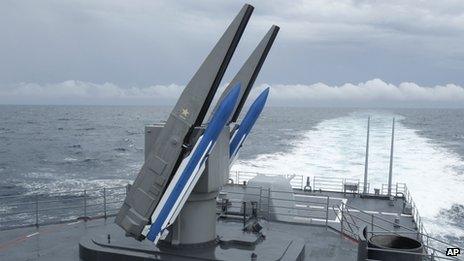
Taiwan conducted the drills after dismissing an apology from the Philippines
Taiwan has conducted military exercises near the Philippines amid a row over the death of a Taiwanese fisherman.
Two frigates, one destroyer and other coast guard vessels have taken part in the drill in the Bashi channel between the two sides.
The fisherman, Hung Shih-cheng, was shot by the Philippine coast guard last week in waters both sides claim.
The Philippine president issued an apology on Wednesday, but Taiwan said the apology was "unacceptable".
The military drill is expected to last for two days.
"The move is aimed to highlight our determination to safeguard sovereignty," Rear Admiral Lee Tung-pao said. "The coastguards have vowed to protect our fishermen wherever they are."
Meanwhile, 14 Taiwanese police investigators have arrived in Manila to take part in an inquiry into the death, AP news agency reported.
A spokesman for Philippine President Benigno Aquino said that the Philippines had "gone the extra mile" and should not have to "appease" Taiwan.
"We have acted uprightly and decently as a respectable member of the international community," presidential spokesman Edwin Lacierda said.
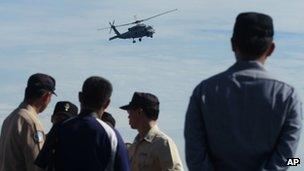
Taiwan and the Philippines have had overlapping territorial claims for years
On Wednesday, Philippine President Benigno Aquino sent a representative, Manila Economic and Cultural Office Chairman Amadeo Perez, to Taiwan to "convey his and the Filipino people's deep regret and apology" to the fisherman's family over the "unfortunate and unintended loss of life".
Taiwan Premier Jiang Yi-huah called the apology a "positive move" but rejected the description of the death as "unintended".
"[Mr] Perez did not have sufficient authorisation and this shows the Philippines' lack of sincerity in resolving the incident," Mr Jiang told reporters.
Taiwan then implemented a series of new diplomatic measures, including a travel alert against the Philippines, the halting of some trade and academic exchanges, and the military drills.
Taiwan had already rejected an initial apology from Antonio Basilio, head of the Philippine Representative Office in Taiwan, instead announcing it would stop processing work applications from Filipinos and recall its envoy from Manila.
'Taiwanese compatriots'
The US has voiced concern over the tensions "between two neighbouring democracies and close [US] partners".
US State Department spokesman Patrick Ventrell said the US hoped both sides would "refrain from actions that could further escalate tensions".
"We want them to work through their differences on this issue as expeditiously as they can," he added.
The US has close relations with both countries. It considers the Philippines a major non-Nato ally, external, and has legally committed itself to helping Taiwan defend itself, through the 1979 Taiwan Relations Act, external.
Mr Hung, the 65-year-old fisherman, was shot dead on 9 May when a Philippine coastguard vessel opened fire on his boat, which was in disputed waters.
The Philippine coastguard said its crew acted in self-defence, believing his boat was trying to ram their vessel. However, the other Taiwanese fishermen on board denied this.
Taiwan and the Philippines have had overlapping territorial claims for years. The two countries have never negotiated a sea border, partly because the Philippines recognises China, not Taiwan.
On Wednesday, a spokesman for the Chinese government said that mainland China had "an obligation" to protect the safety and interests of "Taiwanese compatriots", China's state-run agency Xinhua reported.
China claims sovereignty over Taiwan, although the island has been separately governed since 1949.
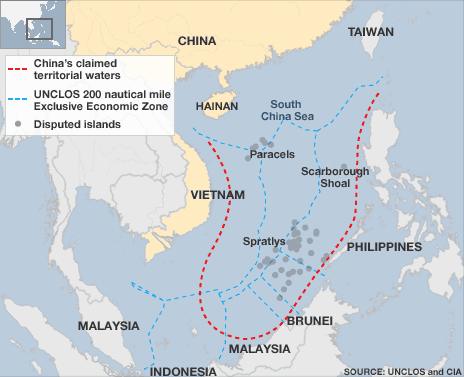
- Published16 May 2013
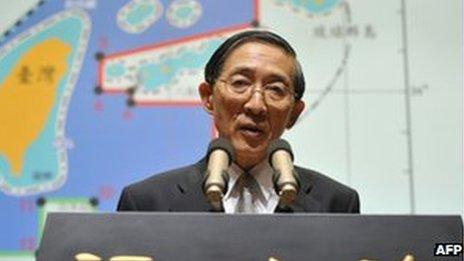
- Published15 May 2013
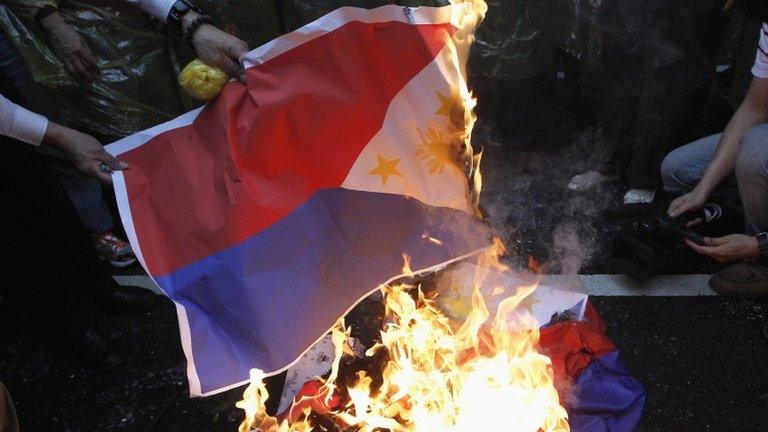
- Published10 May 2013
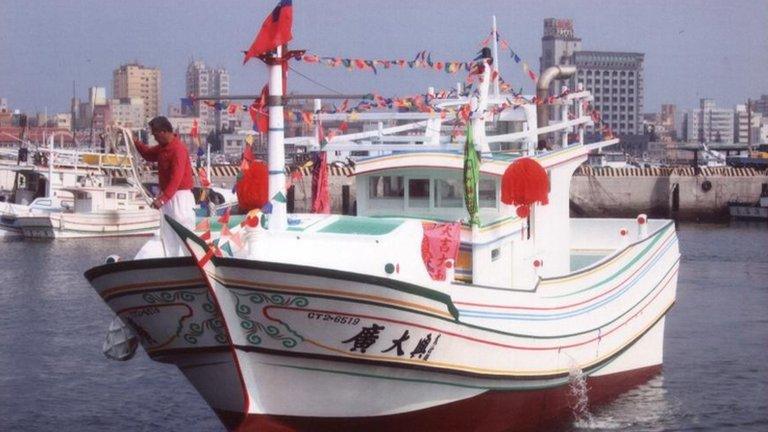
- Published7 July 2023
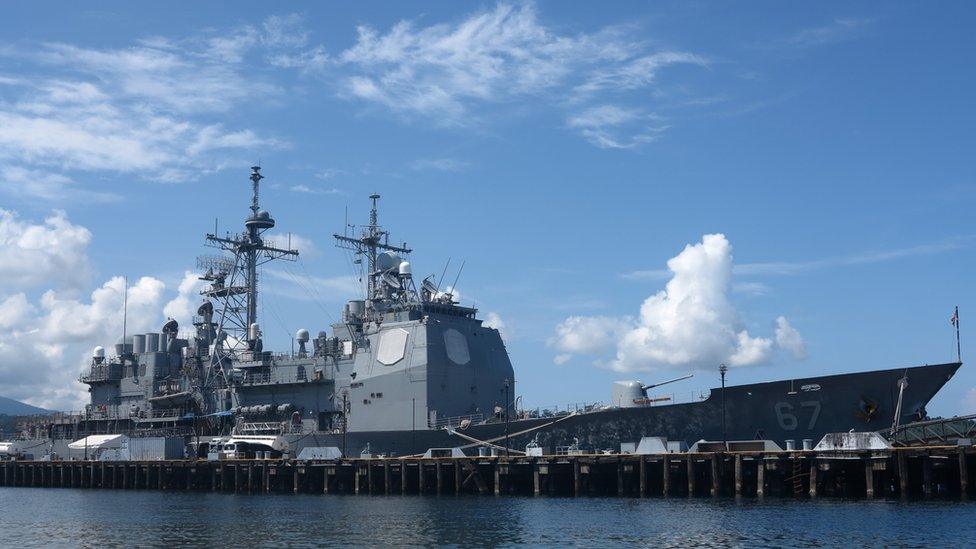
- Published15 January 2013
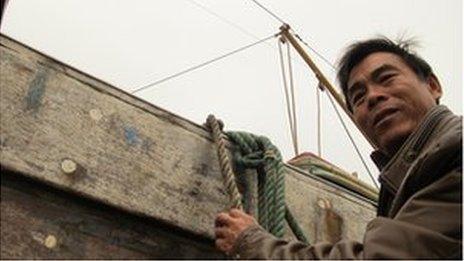
- Published9 February 2012